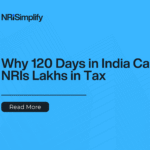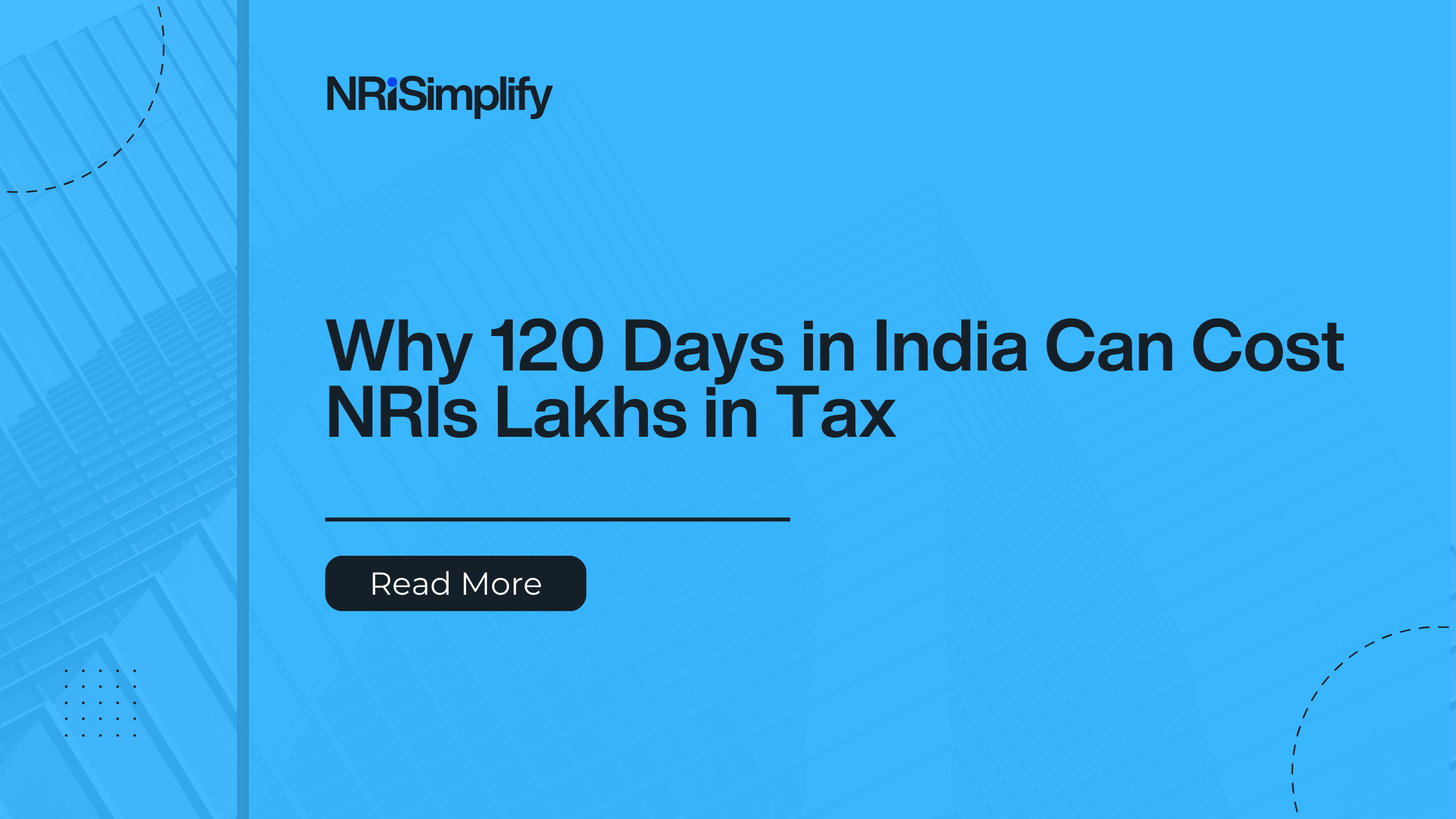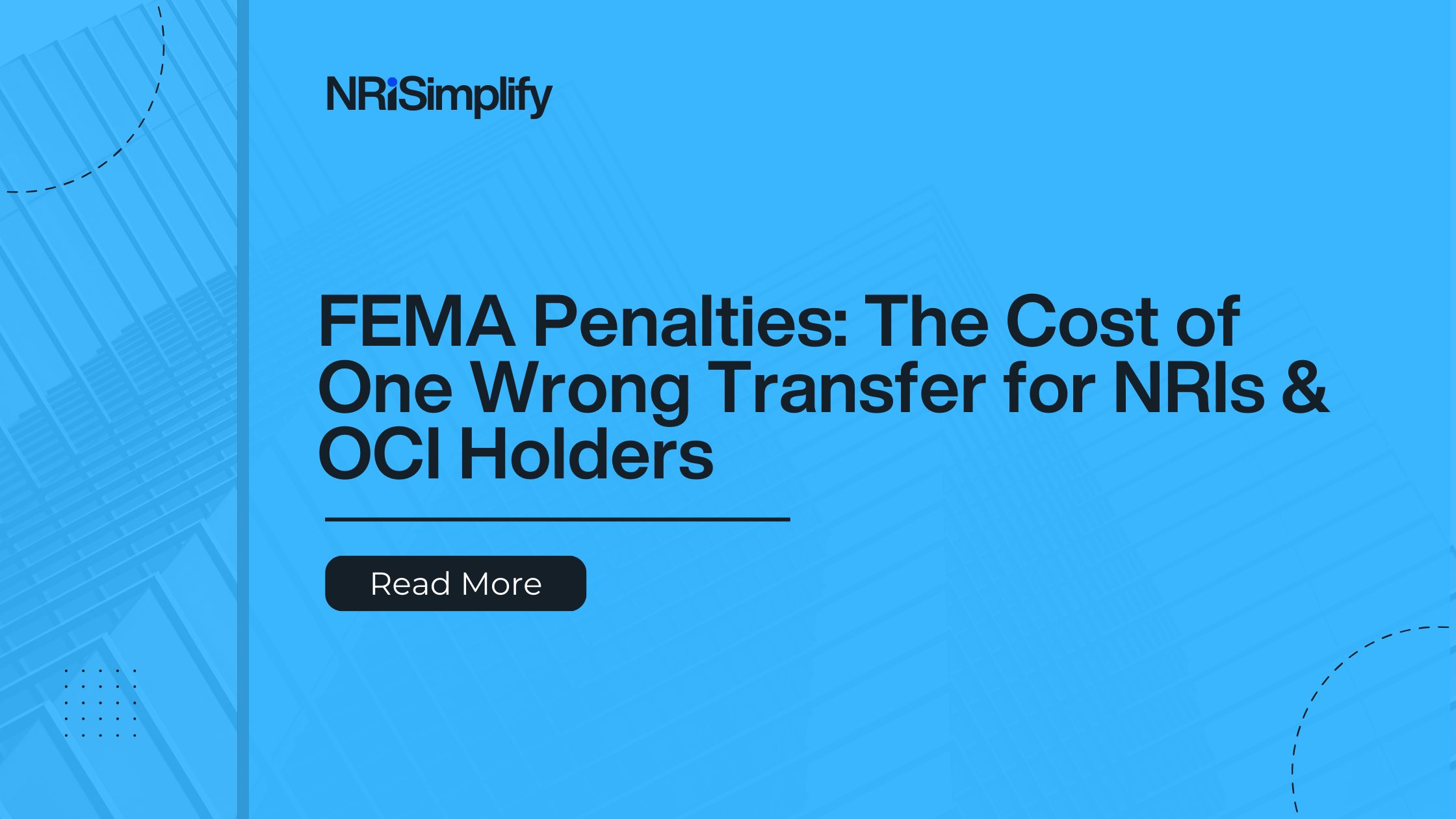The Overseas Citizen of India (OCI) scheme, introduced in 2005, has become a vital bridge for individuals of Indian origin living outside India. It offers significant privileges, including investment opportunities, a lifetime visa, and a chance to maintain strong ties with India. However, many people still lack a clear understanding of OCI card benefits and eligibility for NRIs, and how it impacts their financial and investment plans. This guide will break down the essentials of OCI, its benefits, eligibility criteria, and the investment opportunities available to OCI holders.
What is an OCI?
An Overseas Citizen of India (OCI) is an individual of Indian origin, holding foreign citizenship, who is registered with the Government of India under Section 7A of the Citizenship Act, 1955. The purpose of the OCI status is to allow foreign citizens of Indian origin to live, work, and invest in India without the hassle of needing a visa.
While OCI status is often mistaken for dual citizenship, it does not grant political rights, such as voting in elections or holding public office in India. Nonetheless, OCI holders enjoy several benefits that make them a valuable part of India’s economic ecosystem.
Who is Eligible for OCI Status?
Eligibility for OCI is governed by Section 7A of the Citizenship Act. The following categories are eligible to apply for OCI status:
- Persons of Indian Origin (PIOs): Individuals who were citizens of India on or after January 26, 1950, or who were eligible to become Indian citizens.
- Descendants: Children, grandchildren, or great-grandchildren of Indian citizens or individuals from regions that became part of India post-August 15, 1947.
- Spouses of Indian Citizens or OCI Holders: Foreign nationals married to Indian citizens or OCI cardholders for at least two years.
This broad eligibility scope makes the OCI card accessible to millions with ties to India.
Types of OCI Cards
There is one type of OCI card, but eligibility may vary:
- PIO (Person of Indian Origin) OCI: People who obtain OCI status through their Indian ancestry.
- Non-PIO OCI: Those who obtain OCI status via marriage to an Indian citizen or existing OCI holder.
Key Benefits of OCI Status
An OCI card opens numerous doors for individuals of Indian origin, particularly for those wishing to invest or stay connected with India. Understanding OCI card benefits and eligibility for NRIs is essential for making the most of the opportunities available—ranging from visa-free travel and investment flexibility to tax advantages and access to financial services in India.
- Multiple-Entry Visa: OCI holders receive a life-long multiple-entry visa, allowing unlimited travel to India without needing extensions.
- Work and Live in India: OCI holders can live and work in India indefinitely, facilitating business and professional opportunities.
- Investment in India: OCI holders are eligible to invest in residential and commercial real estate, businesses, and financial instruments. However, agricultural land is off-limits.
- Educational Opportunities: OCI holders are entitled to admission under the NRI quota in Indian educational institutions, a significant advantage over foreign students.
- Banking Flexibility: OCI holders can open NRE, NRO, and FCNR accounts in India. NRE and FCNR accounts are tax-free and fully repatriable, while NRO accounts are taxable.
- Tax Relief: OCI cardholders can benefit from the Double Tax Avoidance Agreement (DTAA) between India and their country of residence, avoiding dual taxation.
- Exemption from Police Registration: OCI holders are not required to report to the police, no matter the length of their stay in India.
Tax Implications for OCI Holders
OCI holders are taxed on income earned in India just like any Indian resident. However, understanding the OCI Card Benefits and Eligibility for NRIs is crucial—especially when it comes to taxation. If an OCI spends more than 182 days in India during a financial year, they will be treated as a resident for tax purposes, and their global income will be subject to Indian taxes.
OCI holders can also benefit from DTAA, which ensures that they are not taxed twice—once in their country of residence and again in India.
Investment Opportunities for OCI Holders
OCI holders have access to a wide range of investment options in India. These include:
- Mutual Funds: OCI holders can invest in equity, debt, and hybrid mutual funds in India. Whether opting for lump-sum investments or SIPs (Systematic Investment Plans), mutual funds are an excellent vehicle for growing wealth.
- Real Estate: OCI holders can buy residential and commercial properties. Agricultural land, however, is prohibited.
- Equities: OCI holders can participate in India’s stock market through the Portfolio Investment Scheme (PIS).
- Fixed Deposits: Fixed deposits in Indian banks, post offices, and other institutions are a safe and stable investment option.
- Government Bonds: For a secure investment, OCI holders can consider government bonds, corporate bonds, and non-convertible debts.
- National Pension Scheme (NPS): OCI holders can invest in NPS (if between 18-70 years), which secures their retirement and offers tax benefits under Section 80C.
How NRI Simplify Can Help OCI Holders
NRI Simplify specializes in assisting OCI holders with managing their Indian investments and ensuring compliance with Indian tax laws. Our expert team provides personalized solutions in the following areas:
- Investment Advice: Guiding OCI holders to identify lucrative investment opportunities in India based on their financial goals.
- Tax Compliance: Ensuring OCI holders benefit from DTAA provisions and efficiently manage their tax liabilities.
- NRE/NRO Accounts: Providing expert advice on opening and managing NRE, NRO, and FCNR accounts, which facilitate seamless fund repatriation.
Conclusion
The Overseas Citizen of India (OCI) card offers NRIs and individuals of Indian origin multiple advantages, from a lifetime visa to investment opportunities and tax relief. Whether you wish to live, work, or invest in India, the OCI card opens numerous doors.
At NRI Simplify, we help OCI holders navigate the complexities of Indian tax laws, investment strategies, and financial management. Our team of experts provides the guidance you need to maximize your opportunities and ensure compliance with all Indian regulations.
Contact NRI Simplify today for expert advice on managing your finances and investments in India as an OCI holder!
Frequently Asked Questions (FAQs)
Q1: What is the difference between OCI, NRI, and PIO?
OCI holders are foreign nationals of Indian origin who enjoy long-term residency and investment privileges in India. NRIs are Indian citizens residing outside India for more than 182 days. PIO status was merged with OCI in 2015.
Q2: Can OCI cardholders vote in Indian elections?
No, OCI cardholders do not have the right to vote in Indian elections or hold political positions.
Q3: Who is eligible to apply for an OCI card?
Individuals of Indian origin, their children, grandchildren, and spouses of Indian citizens or OCI holders can apply for the OCI card.
Q4: What are the main benefits of having an OCI card?
OCI cardholders enjoy multiple-entry lifetime visas, tax relief under DTAA, and the ability to live, work, and invest in India without restrictions.
Q5: Can OCI cardholders own property in India?
Yes, OCI cardholders can purchase residential and commercial properties but are restricted from buying agricultural land.
Q6: What is the tax liability for OCI cardholders in India?
OCI cardholders are subject to taxes on income earned in India. If they stay in India for more than 182 days, their global income becomes taxable in India.
Q7: How can NRI Simplify assist OCI holders?
NRI Simplify offers expert advice on investments, tax planning, and compliance with Indian regulations, ensuring OCI holders manage their finances effectively.






